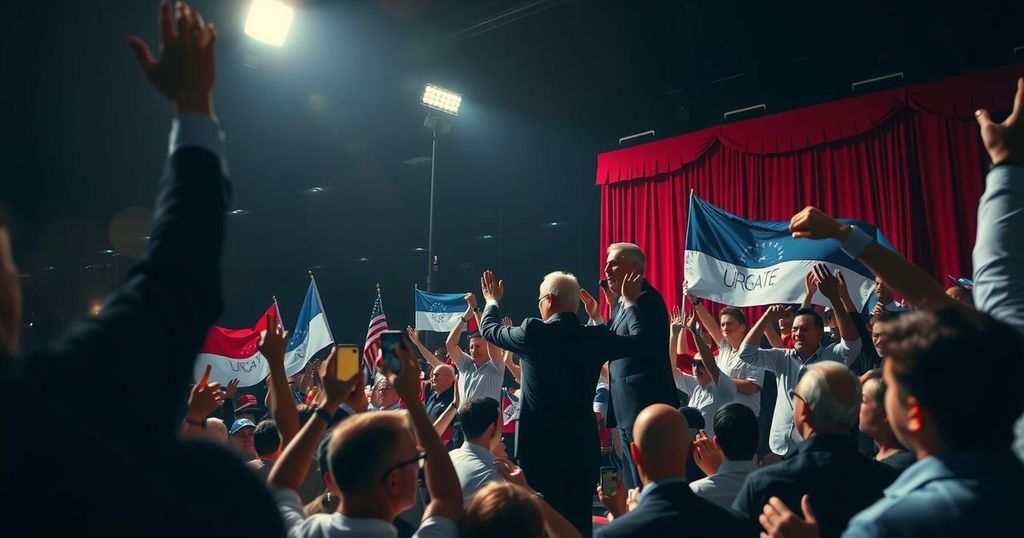Uruguay Holds Closely Contested Presidential Run-off Election
Uruguay is conducting a second-round presidential election featuring Yamandu Orsi and Alvaro Delgado in a closely contested race. Polls indicate a narrow margin between the candidates, with no significant political upheaval expected in contrast to regional trends. Both candidates are aiming to capture a swath of undecided voters as they close out a banner election year in the nation.
Voters in Uruguay are participating in a closely contested presidential run-off, marking the conclusion of a politically active year. The race features opposition center-left candidate Yamandu Orsi and continuity conservative contender Alvaro Delgado, who is supported by a coalition that includes the conservative Colorado Party. Recent polls indicate a highly competitive election, with only a narrow margin expected between the candidates. Unlike the polarized political climates observed in neighboring countries, Uruguay maintains a more moderated political landscape.
The polls opened at 8:00 AM local time and are set to close at 7:30 PM, with preliminary results anticipated shortly thereafter. Yamandu Orsi, representing the Broad Front, received 43.9 percent of the initial vote while Alvaro Delgado garnered 26.8 percent, benefiting from previous alliances with larger parties that collectively held nearly 42 percent of the vote share. Orsi is noted for his commitment to a “modern left” policy, whereas Delgado seeks to build on the success of the current administration led by President Lacalle Pou, who is ineligible for re-election.
Both candidates are vying for the attention of approximately eight percent of voters from the first round, as well as potential abstainers from the initial election. Despite efforts to attract this constituency, neither candidate has unveiled any new policy commitments in the critical weeks leading up to the run-off. An analysis of the current political environment reveals that recent electoral trends suggest voters in various countries are expressing dissatisfaction with incumbent parties, a situation Uruguay appears to be navigating without significant upheaval, owing in part to its stable economy. Analysts posit this dynamic might work in favor of Delgado during the election.
Uruguay, a nation with a population of approximately 3.4 million, is known for its progressive policies, including the legalization of marijuana, and a reputation for political stability. The country is entering a pivotal electoral phase with a second round of voting that reflects not only its unique political culture but also the broader regional context in South America, characterized by right-left divides in neighboring nations. This year’s elections have been particularly significant, with many countries experiencing shifts in power dynamics but Uruguay’s elections have remained relatively calm. The political atmosphere in Uruguay allows for greater fluidity between the conservative and liberal factions compared to the highly charged political environments in countries such as Argentina and Brazil. The outcome of the current run-off may serve as an indicator of whether the nation will sustain its tradition of moderate governance amid global trends of declining support for incumbent parties.
The Uruguayan presidential run-off between Yamandu Orsi and Alvaro Delgado illustrates the nation’s distinct political landscape marked by moderation and coalition-building. With final polling suggesting a tightly contested election, the potential influence of an economically robust environment remains pivotal. As the electoral process unfolds, it will be observed whether Uruguay’s electorate aligns with prevailing global trends or opts for continuity under the current political framework, shaped by both candidates’ pledges and their approaches to governance.
Original Source: www.begadistrictnews.com.au




Post Comment